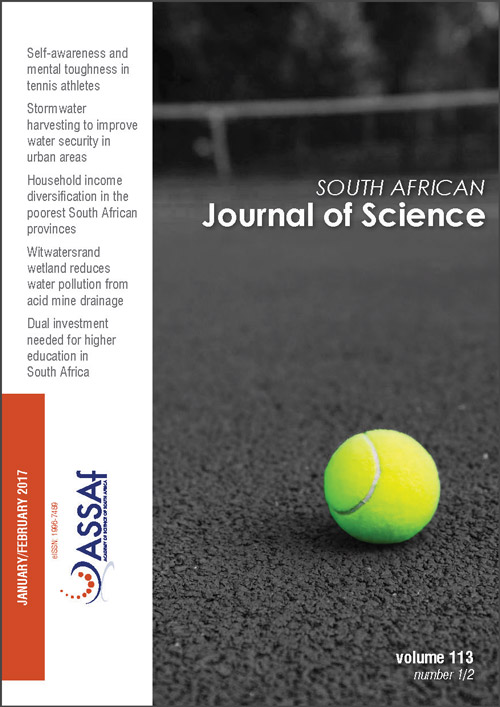Educational investment towards the ideal future: South Africa’s strategic choices
DOI:
https://doi.org/10.17159/sajs.2017/20160227Keywords:
higher education, Brazil, USA;, curriculum, equity, flexible degreeAbstract
Although there has been rapid expansion of higher education around the globe, such expansion has not resulted in a more equitable system. Drawing on the work of Nancy Fraser, equity in higher education is conceptualised as ‘parity of participation’ and includes both equity of access and outcomes. The tensions between expansion and equity are illustrated by comparing South Africa’s equity challenges with those of Brazil and the USA. Focusing on South Africa’s critical choices, four scenarios or possible futures are provided to illustrate some of the trade-offs and strategic choices. The main argument is that if South Africa’s higher education system continues to expand without a concomitant investment in the effectiveness of teaching and learning, it will not achieve the policy goals of equity of access and outcomes. Furthermore the investment needs to be strategically targeted to interventions that can serve as systemic levers of change for reducing drop-out rates and improving graduation rates. To this end, over the next decade the state needs to prioritise an investment in an undergraduate curriculum more ‘fit for purpose’. The investment needs to be in curriculum reform that normalises different levels of foundational provision, identifies and removes curriculum obstacles that delay or impede graduation, and provides opportunities for ‘breadth’ for all students, not only those who come from privileged backgrounds.
Significance:- If South Africa’s higher education system continues to expand without a concomitant investment in the effectiveness of teaching and learning, it will not achieve the policy goals of equity of access and outcomes.
Published
Issue
Section
License

All articles are published under a Creative Commons Attribution 4.0 International Licence
Copyright is retained by the authors. Readers are welcome to reproduce, share and adapt the content without permission provided the source is attributed.
Disclaimer: The publisher and editors accept no responsibility for statements made by the authors
How to Cite
- Abstract 849
- PDF 2314
- EPUB 205
- XML 241












.png)